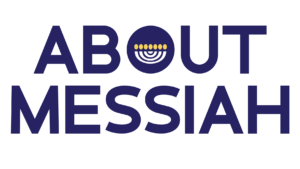Do We Have Free Will?
The topic of free will is one of the most significant questions in philosophy. It has been hotly debated among scholars and authors, but how one answers this question also practically influences how one lives. Do we really have any say whom we marry, what job we get, or even what we eat for lunch? It would surely seem to be the case. Should we be held accountable for our actions? Are we responsible beings, or mere pawns in a cosmic game of chance? These issues have far-reaching consequences for how our society reacts to criminal activity, how we raise children, and how we view our daily activities.
What Is Free Will?
First of all, it is necessary to clarify what is meant by “free will,” a loaded term if there ever was one. Free will is generally defined as the ability to choose something when one could have done otherwise. Suppose you purchase an iPhone. Having free will would mean that you could have purchased an Android phone instead, or chosen not to buy a new phone at all. In contrast, not having free will would mean that, though you may have researched different models, compared prices, and consulted with others, you did not have any control over the outcome. Instead of you choosing the phone, in a sense, the phone chose you.
As crucial as it is to choose the right electronic device, one of the most prominent areas that free will affects is that of ethics, for moral accountability requires that people be able to make choices. Without the notion of free will, there is no basis to oppose wrong actions or honor good ones. Someone who risks her life to rescue a drowning child is no more virtuous than one who holds a child’s head under water, since neither of them could have done otherwise. Holding people responsible for their actions, whether it means disciplining a child, giving a ticket to a reckless driver, or sending a hardened criminal to prison, presupposes that we do have a say in what we do. Likewise, celebrating those who help the homeless or mentor young people implies that they choose to do so. Moral responsibility demonstrates that people can and do make decisions, but this ability should not be confused with an absolute freedom that the term “free will” so often suggests.
Free Will Versus Absolute Autonomy
The truth is, none of us comes from a vacuum. We all have families, cultures, and experiences that shape who we are, and these forces are often out of our control. For example, someone whose parents are well educated, read to their children, and are involved in their schooling is more likely to attend college than someone raised in a home where learning was not valued and modeled. Each of us comes into the world with several factors out of our control, such as location, ethnicity, sex, upbringing, and the age in which we live. These factors—and many more—filter how we see the world, but they alone do not determine our lives. For instance, some who grow up in subpar schools with indifferent parents do become highly educated and successful. They face more intense challenges than others, but they still make choices and are able to rise above their family pattern. Our backgrounds and cultures deeply affect us, but they are not definitive; what is definitive is God’s character and will.
After all, God made the universe and everything that exists within it, and his continuing care for the universe is called his providence. One phrase that the Bible uses to describe how God is fully in control of what occurs is “in him all things hold together” (Colossians 1:17). His providential care extends to international affairs as well as our individual lives. He has authority over political leaders, economic systems, and world history (Daniel 4:35, Psalm 22:8). Of course, not everything that happens is what God desires for his world; many rulers and governments have treated people in horrific ways outside of his moral design of the universe. Nevertheless, his good purposes will be accomplished despite human opposition.
The question of free will is profoundly philosophical, but also deeply practical. The fact that we do make choices should spur us to take our decisions seriously, knowing they have real consequences. At the same time, everyone has a story; although people are responsible for their actions, we must be mindful of how culture and experience affect us and others.
God’s Sovereignty
So, on one hand, we do have free will, since we can and do make real choices in our everyday life. On the other hand, our range of choice is often constrained by factors outside of our control. Beyond societal factors, the most significant constraint upon us is our soul’s burden in doing what is right. The Jewish sages called our human inclination to sin yetzer hara (evil inclination), and we need the rescue God provides in order to flee from its temptations (Romans 5:12–21).
Above all, the fact that God is in control should encourage us (Matthew 10:29–31). This doesn’t mean that bad things will not happen to us, but it does mean that God knows even our most tender wounds and can bring good out of the darkest circumstances.1 Our life stories, our challenges, our small victories, our tears, and our dreams are not accidental; they are fraught with purpose because God, who grants humans the dignity of responsibility, is active in everything that happens.
Footnotes
- A marvelous example of this is the story of Joseph in the Bible, whose brothers sell him into slavery in Egypt, where he is subsequently falsely imprisoned. Still, God uses him to save many lives during a severe famine and makes him one of the most powerful men in Egypt. Years later, he is reconciled to his brothers and tells them, “you meant evil against me, but God meant it for good, to bring it about that many people should be kept alive, as they are today” (Genesis 50:19–21).





